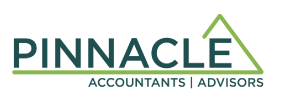Valuations: The Wild West of Accounting – Understanding Goodwill

As we endeavour to understand the landscape of business valuations to expand our own portfolio of services, it forces us to rethink a few “simple” concepts. One of those is goodwill.
What is goodwill?
Let’s start with ourselves as a reference. We are a service-based business and the key product we offer our clients, other than bean counting, is relationships. The strength of those relationships is what makes up the goodwill in our organization. Think about what makes those relationships so powerful. It can be big things like our proposition of timeliness, accessibility, and pricing certainty, but often it’s the more intrinsic stuff, like the feeling you get when you walk in the front door. The qualities that keep customers coming back is what generates value in a business beyond its competitors.
If you are a product-based business, you might think the idea of goodwill doesn’t apply to you, but it does. Unless you have an iron-clad patent that bars anyone from making something that resembles your product, your customers chose your business for a reason. That might be because of the friendly voice they hear when they call, or since your business is closest by, and it might be because of you.
Goodwill is generally the hardest part of a business to assign a value to. Unlike a vehicle, a building, or most other tangible (real) assets, there is only a small, often non-existent, market of comparable transactions. The standard appraisal techniques simply don’t work in this application. Goodwill is subjective, emotional, and kind of messy.
How do you define goodwill?
If you are trying to identify the goodwill of a business, there are five categories we can break it down to start. Goodwill of:
1. People
People-based goodwill is the edge a business has due to a specific person or team. An established team and buzzing culture can keep up retention and productivity. These people not only hold the relationships that make up the team, but the bonds with customers that keep them loyal to the business.
2. Practices
Practice-based goodwill are the systems that keep the machine running. These are tools like handbooks, procedures, and workflow programs that standardize practices in the business and build up redundancy.
3. Location
Location-based goodwill is the value attributed to a specific site. The value from a location will change depending on the accessibility, surrounding market, and exposure it holds, all of which may yield a premium above the appraised value.
4. Brand
Brand-based goodwill exists when a business image is recognizable and has a positive connotation with consumers. Brand recognition can minimize the barriers to growth and offers a buyer an immediate presence in a given market.
5. Individual
Individual(s)-based goodwill is the advantage a “key” person provides a business. A team member’s skills, talent, or expertise may be standout and add incremental value above the broader team-based goodwill.
Can you really buy goodwill?
You can pay someone for goodwill, but whether it can actually be transferred will impact its value. Valuation experts refer to transferrable goodwill as “commercial goodwill.” Commercial goodwill is any of the five types listed above that a buyer will likely be able to benefit from.
Individual-based goodwill in the hands of a seller is usually not commercial since a buyer cannot expect to capitalize on the seller’s qualities when the objective is to takeover their role. The exception being if a seller will continue to be involved post-sale in some capacity.
Goodwill is the highest risk among a businesses assets since its the least liquid part of the investment and the most challenging to recoup. The uncertainty around goodwill can be hedged using legal arrangements like non-compete agreements, retention clauses, employee contracts, and variable pricing structures.
How do you determine the value of goodwill?
Call us.
We can help you understand the value of goodwill in your business or one you might be buying. Better yet, we can advise you on the path ahead.
Written by: Curtis Reeve, CPA
